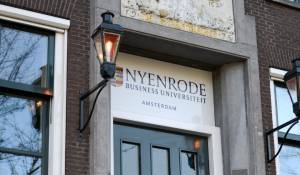Hello everyone. John Branch here, professor of marketing from the University of Michigan. I also serve as Academic Director at Barcelona Management Institute (BMI). I enjoyed reading all your posts and wanted to add some comments from ?the other side?.
To begin, I was doing my Ph.D. at the University of Cambridge when it launched its MBA. Personally, I think that the programme was ill conceived, poorly delivered, and generally not worth 30 000GBP or whatever it cost at the time. However, it was the MBA at Cambridge and therefore, to all who considered it, it must have been absolutely fabulous. That ?halo effect? (as it is called in organisational studies) is at work at many M.B.A. programmes throughout the world. Of course, reputation is usually an indicator of quality, but it is not always true.
For me, the question is how do you really judge the quality of an M.B.A. programme. Research of services in general suggests that consumers use 4 things to evaluate a service: brand image, price, encounters with the company, and quality. Beginning with brand image. The challenge for any school is establishing a brand image (reputation). With respect to BMI, it is new, so it has not the established a reputation yet. However, it has attempted to mitigate this indirectly through its strategy to use leading professors from top business schools from around the world. So, if you were to attend BMI, you could say, ?I got my MBA from BMI.? Some people might scratch their heads. But you could add, ?Well, my professor for The World Economy module was John Branch, professor at Michigan, the #1 ranked school in the U.S. And my professor was from ZSEM, the leading school in the Balkans. And my Managing People professor was from CERAM, a top French school.? Another point to add here. Public universities by their virtue of being public, have a brand image as being supported by the government. But anybody who knows public institutions in Europe knows that in general they are not good (by international standards). They are poorly funded. The professors are not paid well. They are concerned only with research and not teaching. The facilities are not modern. Now of course, they are well known. But they are not good. So, do you want a brand? Or do you want an education? Or some combination?
As for price, public institutions have the benefit of being publicly funded. But as you probably know, in Europe, most business schools are private (or some public private combination). Why? Largely because of the history of higher education in Europe. Economics was researched and taught, but business was not deemed important. So, you will see lots of economics departments in universities, but not many business schools. So, private business schools were set up. And naturally, the price is higher in order to cover costs. Some of the more established schools have loads of money from donors and companies. But they usually charge even higher fees. . . because they can. People will pay what they think it is worth. This is the basic marketing notion of value. With respect to BMI, it is more than some, and less than others. It is certainly more than public university business schools. But there you get what you pay for. . . mostly professors from that country, who have little international experience, are mostly concerned with their research and not the students, etc.
Encounters. . . consumers tend to view the service company in terms of the encounters with people of the company. Because the service is intangible, it is easier to evaluate the people. So, when you have contact with anybody from an institution, ask yourself if the encounter meets or exceeds you expectations. I hope that the encounters which you have had with BMI, have demonstrated excellence. I know that the administration prides itself on this.
And finally quality. . . hmm. The thing is that the traditional definition of quality which might come to mind (meeting certain production standards) does not really apply in services, because services are intangible, and, therefore, provide no touch points for quality evaluation. In fact, (more) research shows that consumers in general assess the empathy, responsiveness, reliability, and assurance of the people, and the ?quality? of the tangible evidence. . . you see, 5 things which are not the quality of the service, specifically because a service is intangible and so they look to the cues which are tangible: the people and the physical environment of the service. So, very pointedly, what does quality mean in an M.B.A.? Recently, and increasingly, business schools are applying for accreditation from various 3rd party accreditation agencies, principally AMBA (U.K.-based), EQUIS (European), and AACSB (American). They each have a list of ?best practices? for M.B.A. programmes, which a school must meet, before it can be accredited. They are not so prescriptive, however. Indeed, they require things like ?Does the school demonstrate a concern for students? Does the school have adequate library facilities??. I was going to use egg or milk marketing board quality accreditation as an analogy. But I think with eggs, there are very specific metrics for identifying ?This egg is a Grade A?. . . moreso than with these accreditation agencies. Indeed, this is the definition of quality from manufacturing/operations. . . the reaching of certain production standards or specifications. But in education I believe, and especially in M.B.A. programmes where the whole idea of innovation and differentiation is not just the norm but the expectation, there is definitely not any generally accepted standards/specifications. Incidentally, B.M.I. is applying for accreditation, but for all three, there is a minimum existence period (usually 3 years) before you can be accredited. So, what is quality? At the end of the day, I suppose, quality is defined to a large extent by the customer. That is, if the student believes that the programme will meet his/her needs, then it is quality. Personally, I think the B.M.I. programme (the curriculum) is great and that is why I am affiliated with the school. It is focused, integrated, international, strategic, conceptual, theoretical and practical at the same time. B.M.I. was very innovative, creating a network of professors which, in my mind, are the three key things for M.B.A. programmes: teaching expertise (most are award-winning); international experience as expatriates, consultants, etc.; and branded (Ph.D. university, companies in which they work, and so on). Sure, B.M.I. does not have the brand, the tradition, the history, the gymnasium, the granite walled institutional feel. But, in additional to the curriculum and the professors, it has tonnes of other things: the city, the international students, the small class size with personal attention, the responsive administration, the paedagogy.
So, there you go. Some things to consider as you are evaluating M.B.A. programmes. I would welcome your comments. Take care and ebst wishes,
John Branch
To begin, I was doing my Ph.D. at the University of Cambridge when it launched its MBA. Personally, I think that the programme was ill conceived, poorly delivered, and generally not worth 30 000GBP or whatever it cost at the time. However, it was the MBA at Cambridge and therefore, to all who considered it, it must have been absolutely fabulous. That ?halo effect? (as it is called in organisational studies) is at work at many M.B.A. programmes throughout the world. Of course, reputation is usually an indicator of quality, but it is not always true.
For me, the question is how do you really judge the quality of an M.B.A. programme. Research of services in general suggests that consumers use 4 things to evaluate a service: brand image, price, encounters with the company, and quality. Beginning with brand image. The challenge for any school is establishing a brand image (reputation). With respect to BMI, it is new, so it has not the established a reputation yet. However, it has attempted to mitigate this indirectly through its strategy to use leading professors from top business schools from around the world. So, if you were to attend BMI, you could say, ?I got my MBA from BMI.? Some people might scratch their heads. But you could add, ?Well, my professor for The World Economy module was John Branch, professor at Michigan, the #1 ranked school in the U.S. And my professor was from ZSEM, the leading school in the Balkans. And my Managing People professor was from CERAM, a top French school.? Another point to add here. Public universities by their virtue of being public, have a brand image as being supported by the government. But anybody who knows public institutions in Europe knows that in general they are not good (by international standards). They are poorly funded. The professors are not paid well. They are concerned only with research and not teaching. The facilities are not modern. Now of course, they are well known. But they are not good. So, do you want a brand? Or do you want an education? Or some combination?
As for price, public institutions have the benefit of being publicly funded. But as you probably know, in Europe, most business schools are private (or some public private combination). Why? Largely because of the history of higher education in Europe. Economics was researched and taught, but business was not deemed important. So, you will see lots of economics departments in universities, but not many business schools. So, private business schools were set up. And naturally, the price is higher in order to cover costs. Some of the more established schools have loads of money from donors and companies. But they usually charge even higher fees. . . because they can. People will pay what they think it is worth. This is the basic marketing notion of value. With respect to BMI, it is more than some, and less than others. It is certainly more than public university business schools. But there you get what you pay for. . . mostly professors from that country, who have little international experience, are mostly concerned with their research and not the students, etc.
Encounters. . . consumers tend to view the service company in terms of the encounters with people of the company. Because the service is intangible, it is easier to evaluate the people. So, when you have contact with anybody from an institution, ask yourself if the encounter meets or exceeds you expectations. I hope that the encounters which you have had with BMI, have demonstrated excellence. I know that the administration prides itself on this.
And finally quality. . . hmm. The thing is that the traditional definition of quality which might come to mind (meeting certain production standards) does not really apply in services, because services are intangible, and, therefore, provide no touch points for quality evaluation. In fact, (more) research shows that consumers in general assess the empathy, responsiveness, reliability, and assurance of the people, and the ?quality? of the tangible evidence. . . you see, 5 things which are not the quality of the service, specifically because a service is intangible and so they look to the cues which are tangible: the people and the physical environment of the service. So, very pointedly, what does quality mean in an M.B.A.? Recently, and increasingly, business schools are applying for accreditation from various 3rd party accreditation agencies, principally AMBA (U.K.-based), EQUIS (European), and AACSB (American). They each have a list of ?best practices? for M.B.A. programmes, which a school must meet, before it can be accredited. They are not so prescriptive, however. Indeed, they require things like ?Does the school demonstrate a concern for students? Does the school have adequate library facilities??. I was going to use egg or milk marketing board quality accreditation as an analogy. But I think with eggs, there are very specific metrics for identifying ?This egg is a Grade A?. . . moreso than with these accreditation agencies. Indeed, this is the definition of quality from manufacturing/operations. . . the reaching of certain production standards or specifications. But in education I believe, and especially in M.B.A. programmes where the whole idea of innovation and differentiation is not just the norm but the expectation, there is definitely not any generally accepted standards/specifications. Incidentally, B.M.I. is applying for accreditation, but for all three, there is a minimum existence period (usually 3 years) before you can be accredited. So, what is quality? At the end of the day, I suppose, quality is defined to a large extent by the customer. That is, if the student believes that the programme will meet his/her needs, then it is quality. Personally, I think the B.M.I. programme (the curriculum) is great and that is why I am affiliated with the school. It is focused, integrated, international, strategic, conceptual, theoretical and practical at the same time. B.M.I. was very innovative, creating a network of professors which, in my mind, are the three key things for M.B.A. programmes: teaching expertise (most are award-winning); international experience as expatriates, consultants, etc.; and branded (Ph.D. university, companies in which they work, and so on). Sure, B.M.I. does not have the brand, the tradition, the history, the gymnasium, the granite walled institutional feel. But, in additional to the curriculum and the professors, it has tonnes of other things: the city, the international students, the small class size with personal attention, the responsive administration, the paedagogy.
So, there you go. Some things to consider as you are evaluating M.B.A. programmes. I would welcome your comments. Take care and ebst wishes,
John Branch



